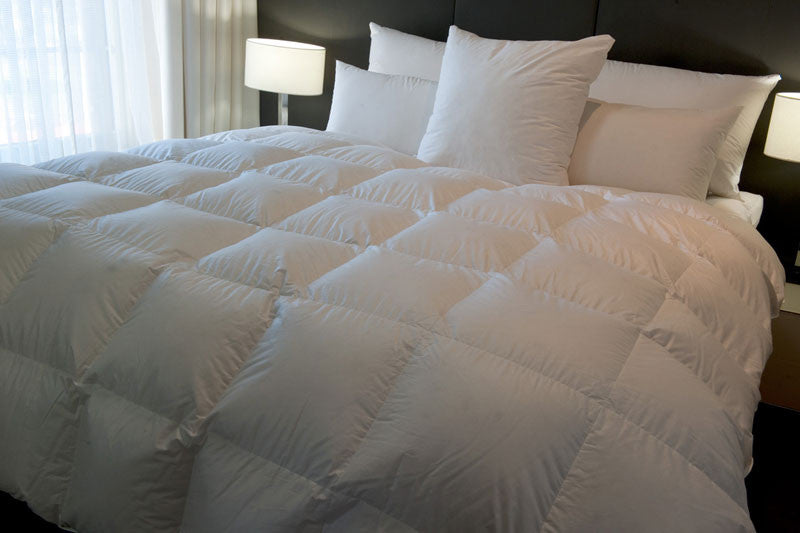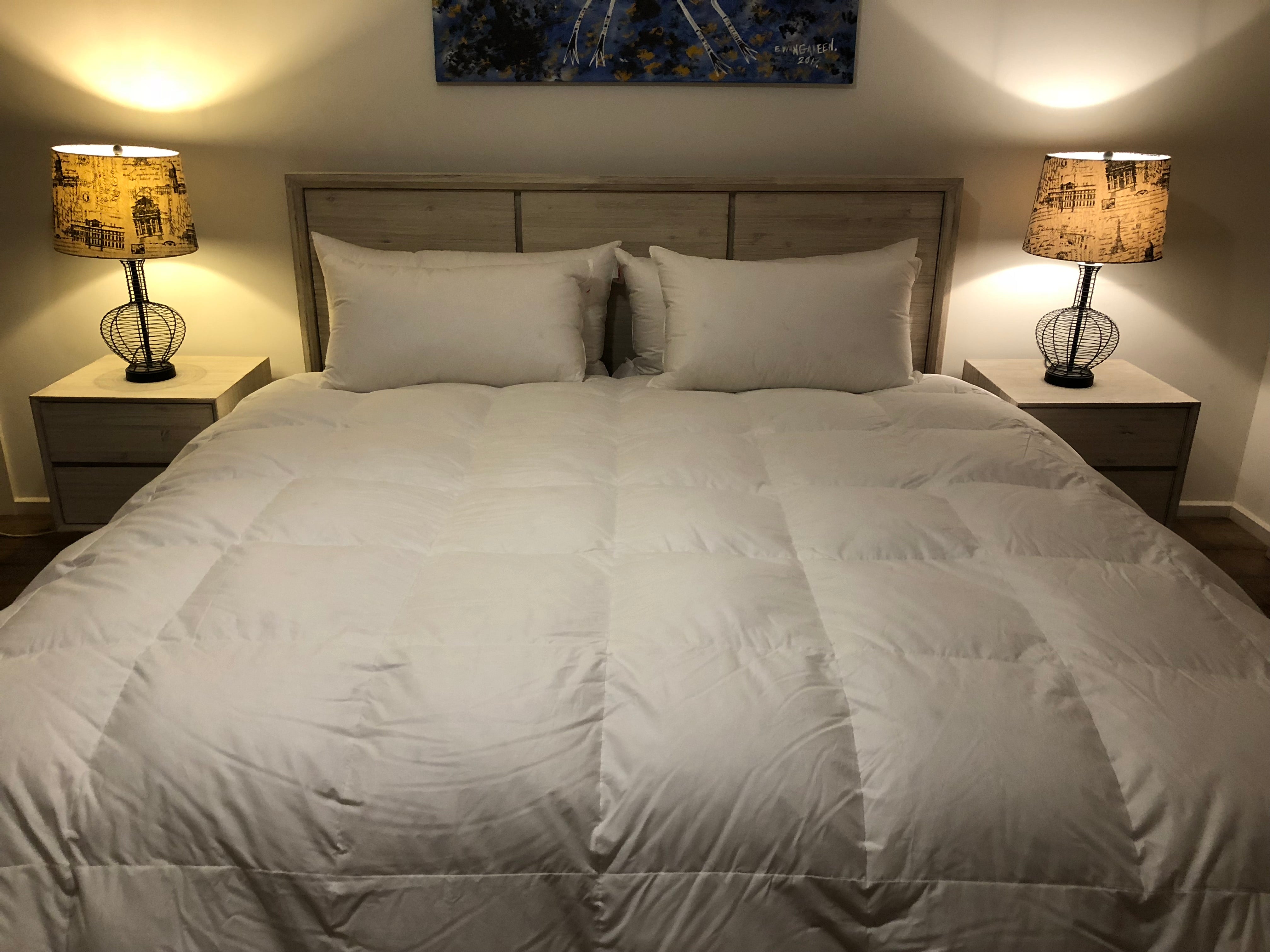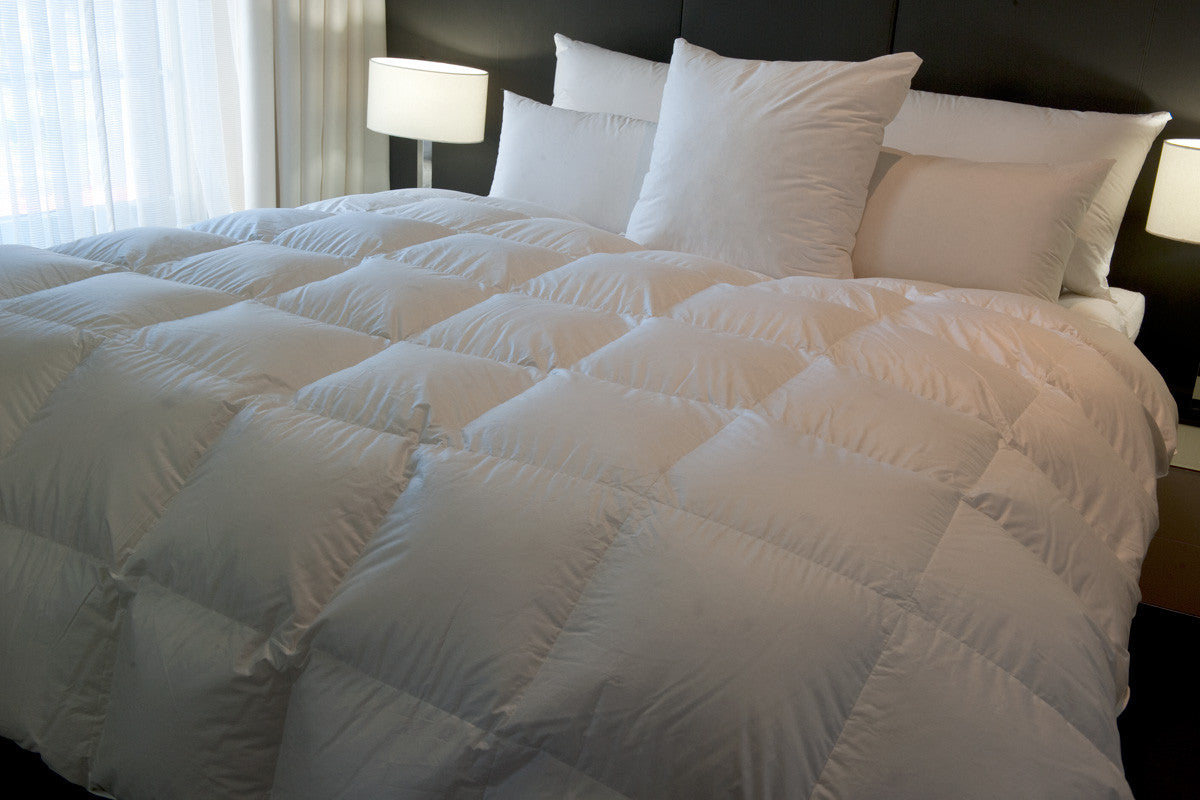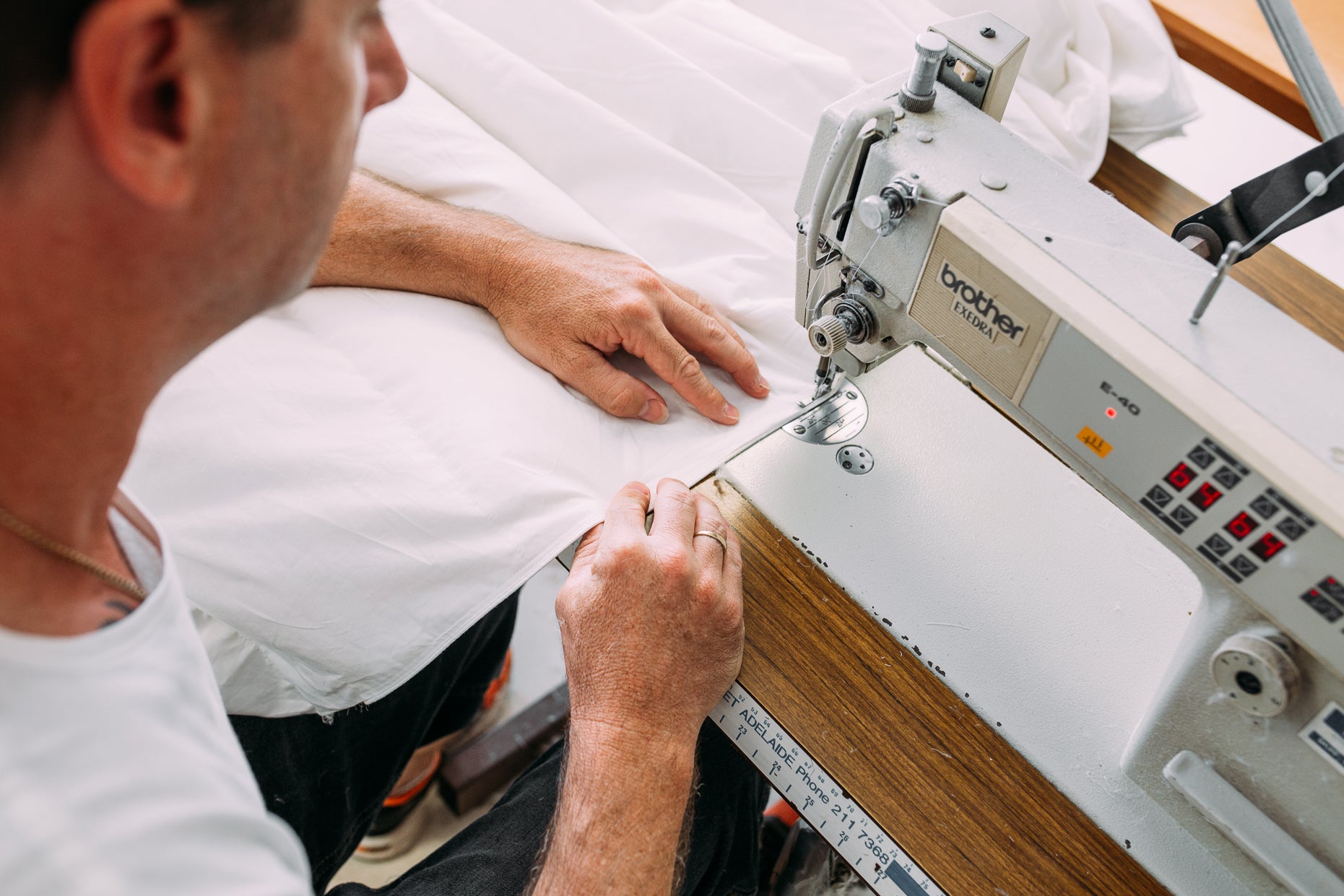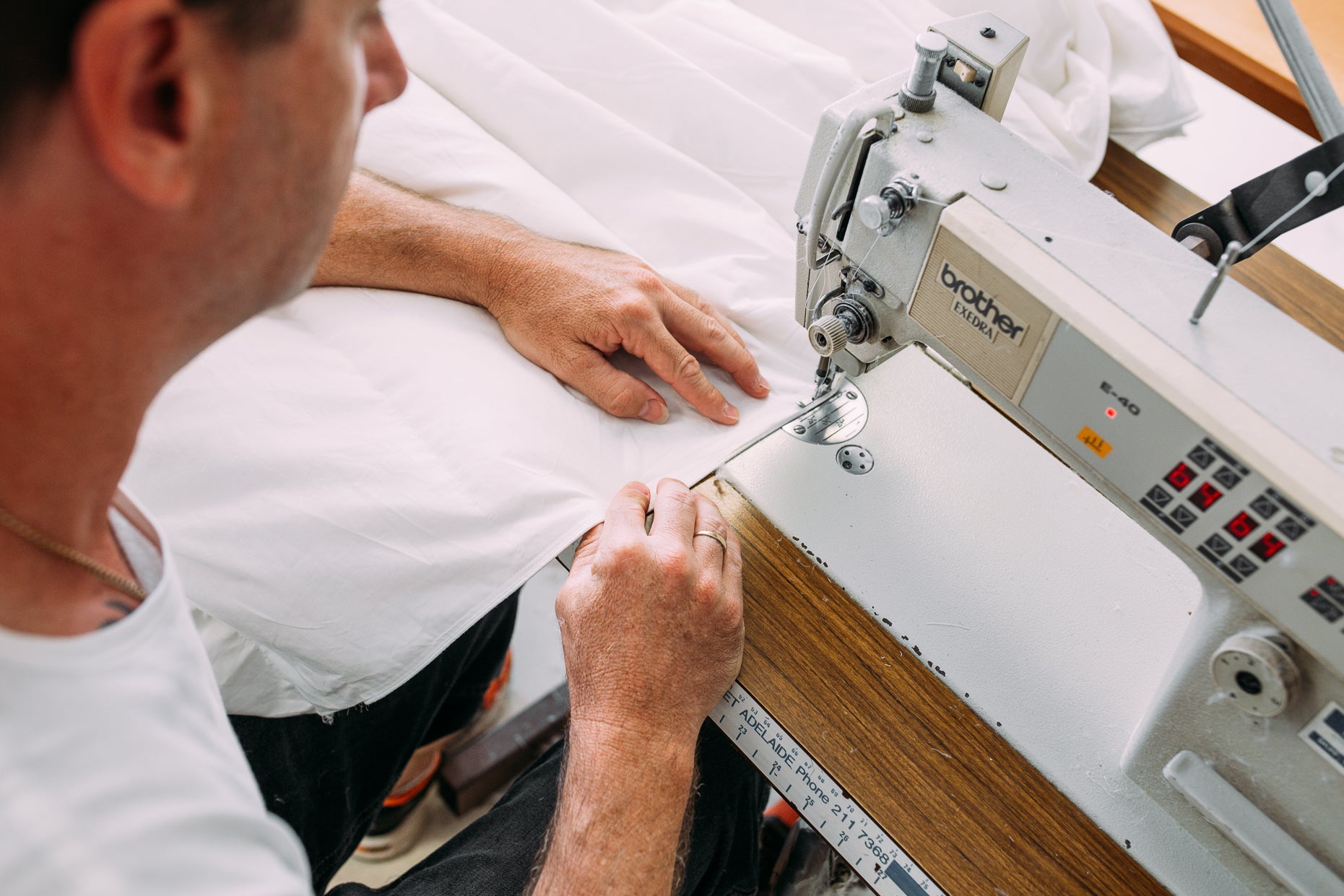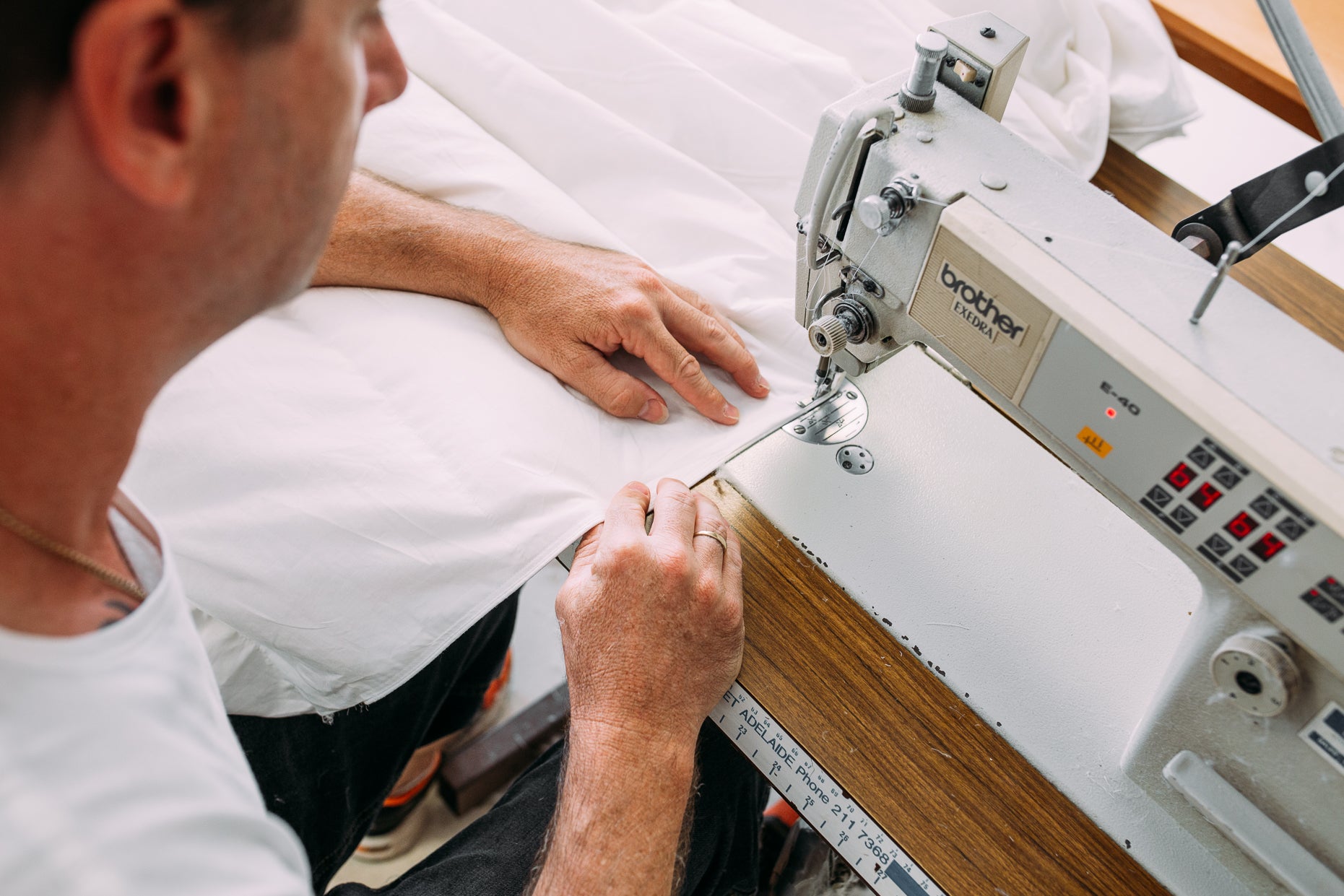
What pillow fill stays fluffy the longest?
The pillow fills that stay fluffy the longest are natural latex, memory foam, and high-quality natural down blends, because these materials are designed to resist flattening and recover their shape after repeated use. Choosing the right pillow fill is one of the most important factors in maintaining long-term comfort, neck support and consistent sleep quality. Many Australians purchase pillows based on how soft they feel in-store, only to find they lose their loft within months due to poor internal structure. Understanding how different pillow fills perform over time makes it much easier to invest in a pillow that stays supportive and comfortable for years. Below are the most common questions people ask when searching for a long-lasting pillow that doesn’t quickly go flat.
Frequently Asked Questions
What pillow fill lasts the longest before going flat?
Natural latex and high-grade memory foam tend to last the longest because they are highly resilient and resist permanent compression. Premium down blends can also last well if properly maintained. The overall lifespan depends on how well the pillow manages moisture and repeated pressure.
Do softer pillows flatten faster than firmer ones?
Generally, very soft pillows flatten more quickly if they lack strong internal structure. Firmer materials like latex and high-density foam are more resistant to long-term compression. A balance of softness and support usually delivers the best durability.
How often should pillows be replaced?
Most pillows should be replaced every two to three years, but premium materials can last longer with proper care. Obvious signs of wear include permanent flattening, lumps and neck discomfort. A well-maintained pillow made from durable materials often outperforms cheaper options.
Does climate affect how long a pillow stays fluffy?
Yes, humid conditions can accelerate breakdown of poor-quality fibres. Breathable materials and moisture-wicking covers perform better in Australia’s varied climate. Good airflow helps maintain the integrity of the fill and prevents premature clumping.
Is it worth investing in a premium pillow?
Higher-quality pillows usually offer better long-term value because they maintain support and structure for longer. While they cost more upfront, they often reduce the need for frequent replacement. This makes them more economical over time.
Key Features to Consider
-
Resilience of the fill and how well it bounces back after compression
-
Stability of fibre structure to prevent clumping and matting
-
Breathability and moisture control for long-term hygiene
-
Ease of cleaning and safe drying without internal damage
-
Even weight distribution for consistent neck and shoulder support
-
Realistic balance between cost and long-term performance
Understanding which pillow fills hold their shape best over time
The pillow fills that stay fluffy the longest are those designed to resist constant compression, moisture damage and internal breakdown, especially natural latex, memory foam and high-grade natural fills. These materials are engineered to recover their shape after repeated use and maintain a consistent loft even with nightly pressure. Cheaper synthetic fillings tend to flatten quickly because the internal fibres bend and remain compressed, rather than springing back into shape.
Natural latex and memory foam pillows are among the best options for staying fluffy the longest because they are durable and resist flattening. While down pillows are very soft and mouldable, they require more frequent fluffing to maintain their loft over time. Buckwheat pillows also last a long time but are known for being heavy and producing a subtle rustling noise during movement at night.
Best options for staying fluffy:
Natural latex: Made from rubber tree sap, latex provides firm, supportive and long-lasting fluffiness. While a traditional block of latex can be harder to reshape, shredded latex pillows are more mouldable and adapt well to different sleeping positions.
Memory foam: Memory foam pillows resist flattening and can provide excellent support. They offer a more mouldable, “snuggly” feel, and many models allow the loft to be adjusted to suit individual comfort preferences.
Options that require more maintenance:
Down and feather: These fills are very soft, fluffy and mouldable but will flatten over time and require regular fluffing to restore their shape. A higher percentage of down typically results in a softer, more durable pillow that holds its loft better.
Microfibre polyester: While a cost-effective option, microfibre tends to flatten much faster than natural latex or memory foam, making it more suitable for guest rooms or decorative pillows.
Material Resilience
Material resilience is the foundation of any pillow that stays fluffy long-term. Resilient materials compress when weight is applied and then return to their original shape when pressure is released. Natural latex is highly durable because its rubber structure maintains elasticity for years without collapsing.
Memory foam also performs strongly in this area when made using high-density formulations. These materials distribute pressure evenly rather than allowing stress to build up in one weak central point. This is one reason why premium bedding specialists such as Supreme Quilts focus heavily on material integrity in long-lasting pillow designs.
Fibre Structure & Loft Retention
Fibre structure refers to how the internal fill is constructed and how well it holds air. High-quality down contains three-dimensional clusters that trap air efficiently, helping the pillow feel light, fluffy and supportive. The more intact and uniform these clusters remain, the longer the pillow maintains its loft.
Poor-quality polyester fibres tend to snap, twist and clump together over time. Once clumping occurs, the pillow develops flat spots and lumps that can’t be restored through fluffing. Strong, consistent fibre structure is one of the most reliable indicators of long-term pillow performance.
Moisture Absorption & Breakdown
Moisture plays a significant role in how quickly a pillow breaks down. Night sweats, humidity and poor ventilation can weaken fibres and cause clumping. Materials that manage moisture effectively tend to maintain their structure far longer.
Latex and open-cell foams allow moisture to escape rather than trapping it internally. Natural materials such as wool and premium down also help regulate humidity naturally. Quality covers with breathable fabrics further protect the internal fill from premature deterioration.
Maintenance Requirements
Even the best materials benefit from good care. Regular airing, gentle washing when appropriate and thorough drying all help preserve the internal structure of the pillow. Latex and memory foam generally require very little maintenance and still retain their shape exceptionally well.
Natural fills often benefit from occasional fluffing and sun drying to restore loft. It’s important to always follow manufacturer care instructions because incorrect washing methods can permanently damage the internal structure. If you’re uncertain which pillow fill suits your sleeping habits, it’s always wise to contact us for tailored professional guidance.
Weight Distribution & Compression Resistance
How well a pillow distributes weight affects how long it stays fluffy. Evenly distributed pressure reduces stress on individual fibres and prevents premature breakdown. High-quality pillows are designed to support the head and neck without collapsing in the centre.
Materials such as latex and high-density foam excel at resisting long-term compression. This is particularly important for side sleepers, who place more consistent pressure on their pillows. Strong compression resistance often translates directly into longer loft retention.
Lifespan vs Cost Value
The true value of a pillow lies in how long it remains comfortable and supportive. Cheap pillows often appear cost-effective until they need replacing within a short timeframe. Premium materials usually cost more upfront but deliver better sleep quality and reduced replacement frequency.
Investing in well-crafted pillows from trusted Australian manufacturers such as Supreme Quilts provides a strong balance of durability, comfort and long-term value. This approach reduces waste and enhances consistent sleep quality over time.

